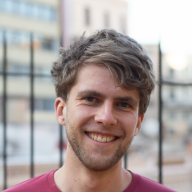
MaxDalton
Bio
I am currently an interim advisor at the Centre for Effective Altruism, an organization that is trying to support the EA community in order to create a radically better world. Before that I was Executive Director for 4 years: I set our overall strategy, hired people to further in our work, and managed and empowered the leadership team.
I used to be a moderator here, and helped to launch the new version of the Forum in 2018. Before that I studied economics, did some mediocre global priorities research, and helped to set up an early version of EA Funds.
Feel free to reach out if you think I might be able to help you. Follow the links to give (anonymous) feedback to me or CEA.
How others can help me
- Give me (anonymous) feedback on effective altruism, and CEA's work (groups, Forum, events, etc.)
- Point me towards great group organizers, writers, designers, software engineers, product managers, and junior operations people (and more)!
How I can help others
- I might be able to help you talk through issues you're facing relating to management, and I can point you towards some good resources if you're new to management.
- I might be able to fix issues you see in CEA's work.
Posts 40
Comments252
Topic contributions10
Maybe I'm misunderstanding what you want EVF to do, but when I go to the page that you linked to I see a list of trustees with bios at the bottom of it. (This doesn't solve the "contact" problem, but it does solve "who they are and what they do".)
We received over 400 nominations for the CEA CEO role, and are planning to reach out to over 100 people, roughly one third of whom have not worked in EA orgs before.[1]
I think that EA context is helpful in the role, and it is at least important that people can get up to speed quickly. But outside perspective and experience is also helpful, so we're considering people with different degrees of EA engagement.
- ^
At a quick skim, I didn't look into this rigorously.
Thanks! I agree with this post.
I notice that I want to reframe this more positively, as "If you meet someone who is not a good fit for your approach to doing good, you should try to signpost them to communities/organizations that are a better fit". (But maybe that's saying something importantly different from your point?)
Thanks for the feedback! We're still discussing how we should get community input on visions later on in the process, so I don't yet have a clear answer, sorry. One thing that we've (briefly) discussed is asking candidates (probably anonymously) to share their visions on the Forum, for people to comment on. But there's some disagreement among committee members about whether that would make sense, and it might depend a bit on the visions/candidates, so we don't have firm plans yet.
I'm not sure if this is answering your first question, but they wouldn't just be CEO for two weeks! Instead we'd design particular work trials to test attributes they would need in the role, set up meetings for them to get to know staff and stakeholders, and give them time and information to begin to develop a vision for CEA.
Re your second question: as we say, this is our ideal but we'd shape things around candidates. We know that this might not work for some candidates, but we think that it would work for others. If it did work out for candidates, it would give both us and them a lot more information, and we think that would be worthwhile. If this didn't work out, we'd work with candidates to find other ways of testing fit (shorter trial tasks, references, etc).
If they don't trust GW, why would they trust your calculation, which also rests on GW's analysis? Here's a spreadsheet with GW's analysis: I think that the 159,000 figure is just them doing a pretty similar BOTEC to yours, but across all of their top charities (and they seem to have a higher figure for total donations to AMF, not sure what's driving the difference there).
Moreover, GiveWell estimate that "GiveWell-directed donations to our recommended charities between 2009 and 2021 will avert over 159,000 deaths" (accounting for all top charities, not just AMF).
Here's a post from a few months ago where they announced the event. (Maybe this is what Owen wanted to link to.)

There are bios on that page.